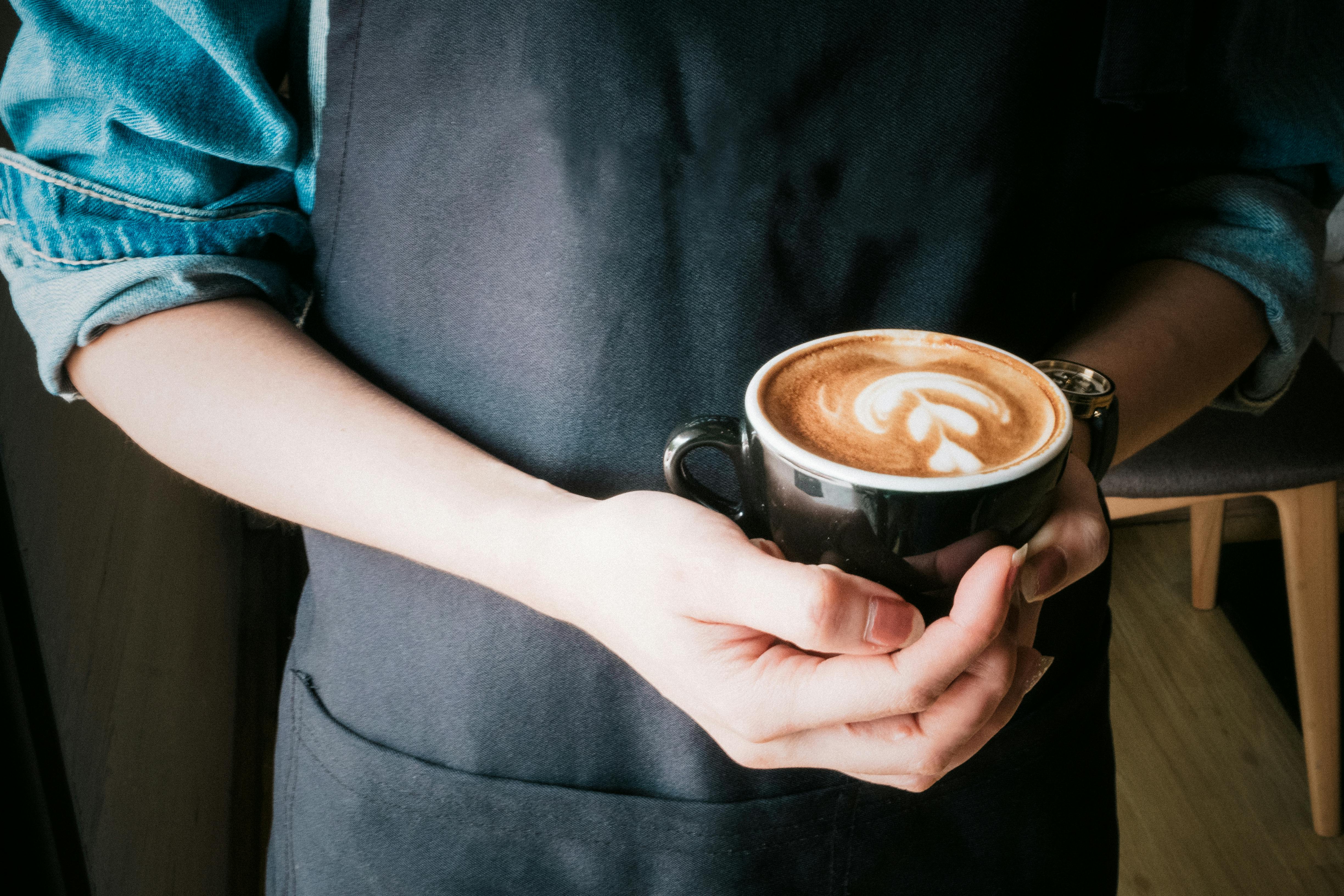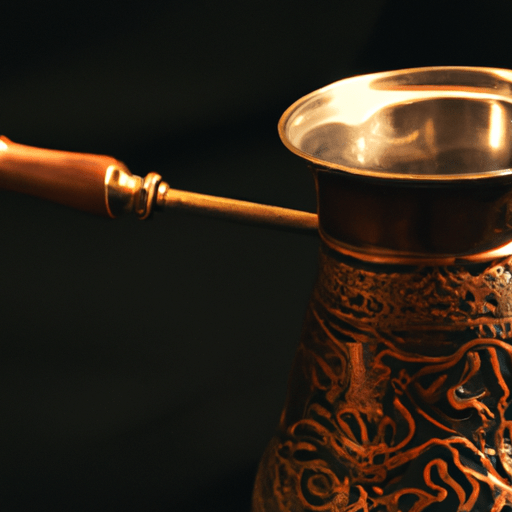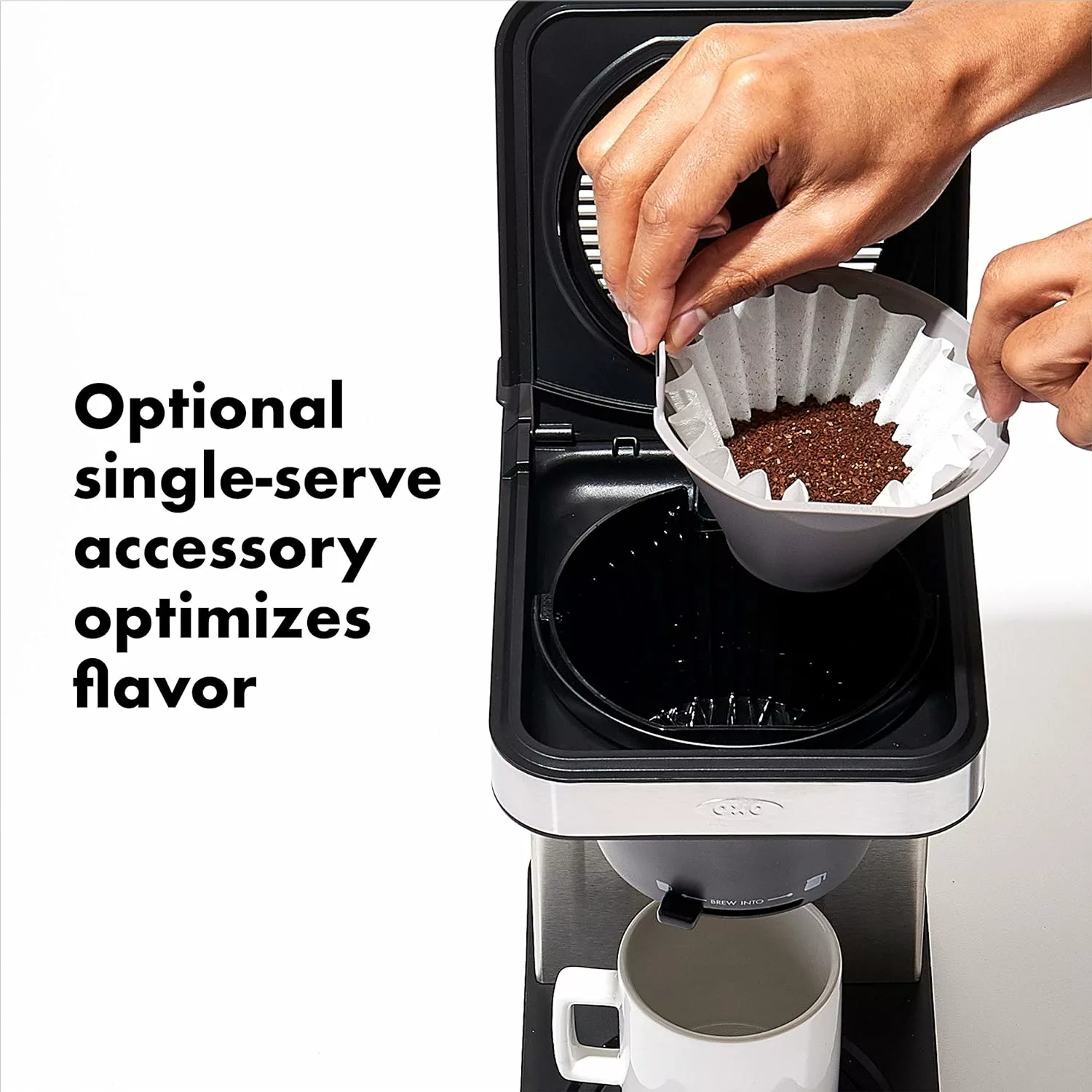Imagine waking up to the rich aroma of freshly brewed coffee, a scent that instantly transports you to the bustling streets of Sarajevo. In this article, we will guide you through the exquisite art of making traditional Bosnian coffee. From the meticulous preparation to the simmering process, we will reveal the secrets that transform a simple cup of coffee into a cultural experience. With a few key ingredients and a dash of patience, you’ll soon be savoring your own authentic Bosnian coffee, ready to embark on a journey of flavors that will awaken your senses.
Understanding the Bosnian Coffee Culture
Bosnian coffee holds a significant place in the hearts of many Bosnians, as it is more than just a beverage; it is a symbol of tradition, hospitality, and social interaction. The coffee culture in Bosnia is deeply rooted, dating back centuries to the Ottoman Empire. It is a custom that is preserved and embraced by generations, making it an integral part of Bosnian identity.
Significance of Coffee in Bosnia
Coffee plays a unique role in Bosnian culture, representing a time-honored tradition that brings people together. In Bosnia, offering coffee to guests is considered a gesture of warm hospitality and a way to show respect. It is customary to serve Bosnian coffee to visitors as a sign of friendship and a way to foster meaningful connections.
Difference between Bosnian Coffee and Other Coffees
Bosnian coffee stands out from other types of coffee due to its brewing method, taste, and cultural significance. Unlike other coffee varieties, Bosnian coffee is prepared using a specific technique that involves simmering finely ground coffee in a special pot called a dzezva. This process results in a rich, full-bodied flavor that is distinctively Bosnian.
Traditional Bosnian Coffee Ceremony
The preparation and consumption of Bosnian coffee is more than just a routine; it is a ceremony that reflects the values and traditions of Bosnian culture. The Bosnian coffee ceremony involves a meticulous attention to detail and a deep appreciation for the process. From selecting the right coffee beans to brewing the coffee to perfection, each step is regarded with utmost care and reverence.
Ingredients and Tools Needed for Bosnian Coffee
To make authentic Bosnian coffee, you will need a few essential ingredients and specific tools. Here is a breakdown of what you will need:
List of Ingredients Required
- Bosnian coffee beans: Look for high-quality, finely ground coffee beans specifically labeled for Bosnian coffee.
- Water: Use fresh, cold water for brewing.
- Sugar: Optional, but traditionally served with Bosnian coffee.
- Rahat Lokum (Turkish delight): Often served alongside Bosnian coffee as a sweet treat.
Specific Tools and Equipment
- Dzezva (coffee pot): This special long-handled pot is used for brewing Bosnian coffee. It is typically made of copper or stainless steel.
- Fildžan (coffee cup): A small, cylindrical cup without a handle, specifically designed for serving Bosnian coffee.
- Cezve or grinder: A hand grinder is recommended for grinding the coffee beans to the desired consistency.
- Spoon: A long-handled spoon is used for stirring and measuring the coffee.
Where to Source Ingredients and Tools
To obtain the necessary ingredients and tools for making Bosnian coffee, you can visit specialty stores that carry Balkan or Middle Eastern products. They often stock Bosnian coffee beans, dzezvas, fildžans, and even rahat lokum. Online retailers specializing in coffee and traditional cookware may also have these items available for purchase.

This image is property of images.pexels.com.
Understanding the Dzezva (Coffee Pot)
What is a Dzezva?
The dzezva is an essential tool used to brew Bosnian coffee. It is a long-handled pot specifically designed for the slow, controlled process of simmering coffee. The dzezva is often made of copper or stainless steel, known for its optimal heat conductivity and durability.
The Importance of the Dzezva in Bosnian Coffee
The dzezva is more than just a vessel for brewing coffee; it is a symbol of tradition and an integral part of Bosnian coffee culture. Its unique shape and long handle allow for precise pouring, ensuring that the coffee grounds settle at the bottom of the cup, delivering a rich, aromatic experience.
How to Properly Clean and Maintain a Dzezva
To ensure the longevity of your dzezva and the quality of your coffee, proper cleaning and maintenance are crucial. After each use, rinse the dzezva with warm water and mild soap. Avoid using abrasive cleaners or scrubbers, as they may damage the pot’s interior.
Periodically, deep clean your dzezva by simmering a mixture of water and vinegar. This will help remove any residual coffee oils and maintain the dzezva’s integrity. Remember to thoroughly rinse the dzezva afterward to eliminate any lingering vinegar odors.
Understanding the Fildžan (Coffee Cup)
What is a Fildžan?
The fildžan is a unique cup specifically designed for serving Bosnian coffee. It is a small, cylindrical cup, typically without a handle, and made of porcelain or ceramic. The fildžan’s delicate size and shape allow for the perfect balance between aesthetics and functionality.
Significance of the Fildžan in the Coffee Tradition
The fildžan holds a special place in Bosnian coffee culture, as it encapsulates the traditions and customs associated with the coffee-drinking experience. The small size of the cup encourages savoring the coffee slowly, appreciating its aroma and flavor. It also symbolizes the importance of sharing and connecting with others over a cup of coffee.
Handling and Cleaning a Fildžan
When handling a fildžan, it is essential to hold it by its cylindrical body to maintain its delicate balance. Avoid touching the rim of the cup, as this may alter the temperature of the coffee.
To clean a fildžan, rinse it with warm water immediately after use. Use a soft brush or sponge to remove any residue gently. Be cautious not to scrub aggressively, as this may damage the cup’s surface. Allow the fildžan to air dry or pat it dry with a soft cloth before storing it.

This image is property of images.pexels.com.
Preparation of the Coffee Beans
Choosing the Right Coffee Beans
The quality of your Bosnian coffee hinges on selecting the right coffee beans. Look for finely ground Bosnian coffee beans that are specifically labeled for Bosnian coffee. These beans are usually dark-roasted and finely ground to achieve the desired consistency for brewing Bosnian coffee.
Proper Grinding Techniques for Bosnian Coffee
To maximize the flavor and aroma of your Bosnian coffee, it is recommended to grind the beans yourself. Invest in a quality hand grinder and set it to a fine or medium-fine setting. The resulting consistency should be similar to powdered sugar, allowing for an optimal extraction of flavors during the brewing process.
Why Grinding Beans Yourself is Important
Grinding the coffee beans just before brewing ensures the freshest and most flavorful cup of Bosnian coffee. Pre-ground coffee beans often lose their aroma and taste as they are exposed to air and moisture for an extended period. Grinding your beans ensures that you preserve the coffee’s natural oils and flavors until the moment you are ready to brew.
Brewing the Coffee
Step by Step Guide on Brewing Bosnian Coffee
- Measure the water: For each cup of coffee, measure one fildžan (approximately 90ml) of cold water.
- Fill the dzezva: Pour the measured water into the dzezva.
- Add coffee: Add one heaping teaspoon of coffee per fildžan of water into the dzezva.
- Mix gently: Use a long-handled spoon to gently stir the coffee, ensuring that the grounds are evenly distributed.
- Brew over low heat: Place the dzezva on low heat and let it gradually heat up. Stir occasionally until the coffee starts to froth.
- Create the foam: Once the coffee starts foaming, remove it from the heat and let it settle for a few moments. Return it to the heat and repeat this process two more times to create a rich foam on top.
- Pour slowly: Slowly pour the coffee into the fildžans, making sure to distribute the foam evenly among the cups.
- Let it settle: Allow the coffee to settle for a minute before serving to let the grounds settle to the bottom.
The Importance of Water Temperature
Maintaining the correct water temperature throughout the brewing process is crucial to achieving the perfect cup of Bosnian coffee. The water should be cold when initially added to the dzezva. Heating the water gradually over low heat prevents it from reaching boiling temperature, which can result in a bitter taste and an overpowering aroma.
How Long to Brew for Optimal Flavor
The optimal brewing time for Bosnian coffee can vary based on personal preference. On average, it takes approximately 4 to 5 minutes to brew the coffee to a medium strength. However, some individuals prefer a stronger cup and may extend the brewing time slightly. Experiment with different durations until you find the perfect balance of strength and flavor for your taste.

This image is property of images.pexels.com.
Serving Bosnian Coffee
How to Serve Bosnian Coffee Traditionally
Traditionally, Bosnian coffee is served on a round tray, accompanied by a glass of water, a small spoon, and a fildžan filled with coffee. The host offers the tray to the guest with their right hand, using their left hand to support the tray from underneath. This gesture signifies respect and hospitality.
The Role of Sugar and ‘Rahat Lokum’ in Bosnian Coffee
Sugar is often served alongside Bosnian coffee, allowing individuals to sweeten their cup to their liking. It is customary to place a cube of sugar or a small sugar cube holder on the saucer next to the fildžan. Additionally, rahat lokum, a soft, delicately flavored Turkish delight, is often served as a delightful accompaniment to Bosnian coffee, further enhancing the overall experience.
Common Practices in Serving and Drinking Bosnian Coffee
When serving Bosnian coffee, it is customary to offer refills to guests as a sign of generosity and hospitality. To indicate that you have finished your cup, leave the empty fildžan upside down on the saucer, subtly signaling to the host that you do not require a refill.
While drinking Bosnian coffee, take small, slow sips, and savor the rich flavors and aromas. Engage in meaningful conversations with those around you, for Bosnian coffee encourages bonding and connections.
Common Mistakes when Making Bosnian Coffee
Mistakes to Avoid During Preparation
Some common mistakes to avoid during the preparation of Bosnian coffee include using improper grind size, not measuring the water and coffee ratios accurately, and overheating the water or coffee during the brewing process. Additionally, using low-quality coffee beans can significantly impact the taste and overall experience.
Correcting Brewing Mistakes
If you find that your Bosnian coffee has ended up too weak or too bitter, there are ways to correct these errors. If it is too weak, adjust the coffee-to-water ratio by adding more coffee grounds to the dzezva. If the coffee is too bitter, you can dilute it slightly by adding a splash of cold water after it has finished brewing.
Mistakes to Avoid While Serving
When serving Bosnian coffee, it is crucial to maintain the traditional customs and etiquette. Avoid rushing the process or neglecting to offer refills to guests. Additionally, be attentive to the preferences of your guests regarding sugar and the strength of the coffee, ensuring they have a pleasant and personalized coffee-drinking experience.
The Health Benefits of Bosnian Coffee
Nutritional Content of Bosnian Coffee
Bosnian coffee is low in calories and fat, making it a guilt-free indulgence. A typical cup of Bosnian coffee contains approximately 2 calories and negligible amounts of fat, carbohydrates, and protein. It is worth noting that the nutritional content may vary depending on the addition of sugar or milk.
Potential Health Benefits
Like any coffee variety, Bosnian coffee contains caffeine, which can provide various health benefits when consumed in moderation. Some potential benefits associated with moderate caffeine consumption include improved cognitive function, increased alertness, and enhanced athletic performance.
Precautions and Potential Health Risks
While Bosnian coffee can offer certain health benefits, it is essential to consume it in moderation. Excessive caffeine intake can lead to side effects such as restlessness, insomnia, increased heart rate, and digestive issues. Individuals with underlying health conditions or caffeine sensitivity should consult with their healthcare provider before consuming Bosnian coffee.
Preserving and Enhancing the Tradition of Bosnian Coffee
Influence of Bosnian Coffee on Culture
The Bosnian coffee tradition has significantly influenced Bosnian culture, shaping social interactions, and fostering a sense of community. It serves as a platform for open conversations, strengthening friendships, and passing down cherished values from one generation to the next. The presence of Bosnian coffee in various aspects of Bosnian society is a testament to its enduring significance.
Incorporating Bosnian Coffee in Modern Lifestyle
While Bosnian coffee remains deeply rooted in tradition, it has also found its place in the modern lifestyle. Coffee shops serving Bosnian coffee have emerged worldwide, offering individuals the opportunity to experience the culture and flavors of Bosnia. Bosnian coffee has adapted to the demands of contemporary life while retaining its authenticity and cultural heritage.
Encouraging the Younger Generation to Keep the Tradition Alive
Preserving Bosnian coffee tradition is essential for passing on the cultural heritage and fostering a sense of identity among the younger generation. Encouraging the youth to learn about, appreciate, and actively participate in the preparation and consumption of Bosnian coffee ensures the longevity of this cherished tradition. By incorporating modern elements, such as interactive workshops and social media platforms, the tradition of Bosnian coffee can continue to thrive and evolve.




